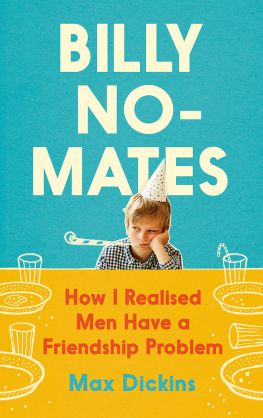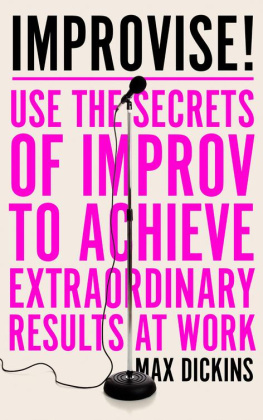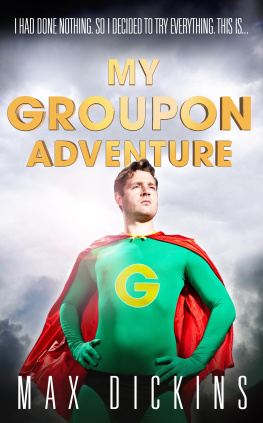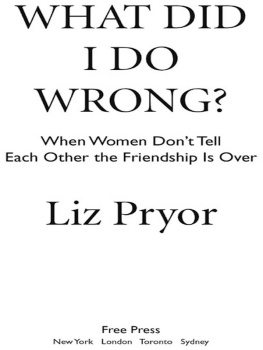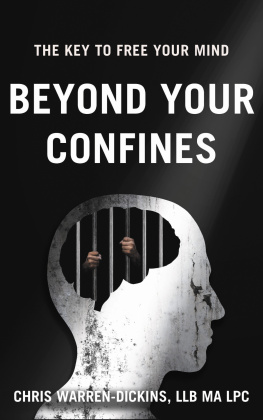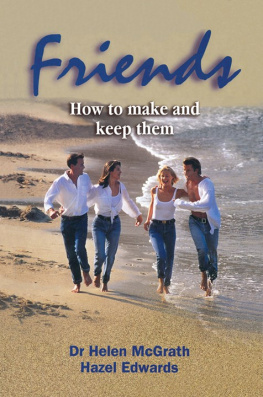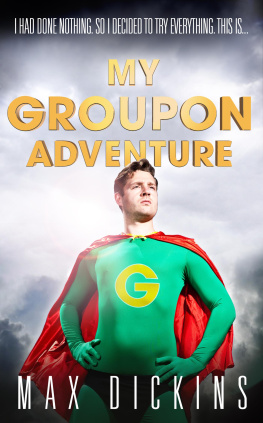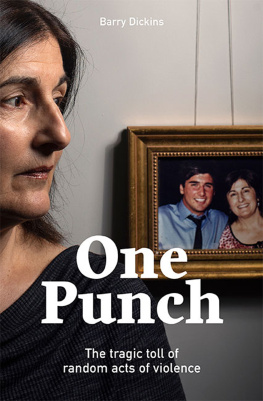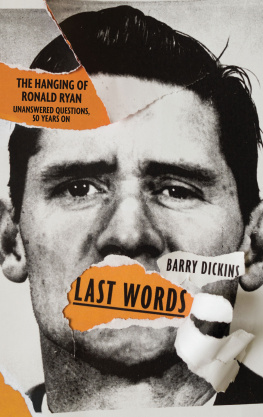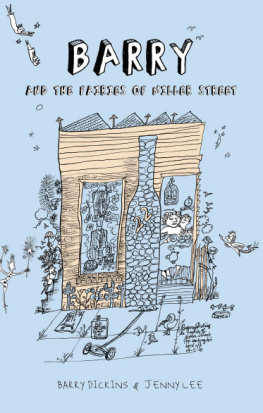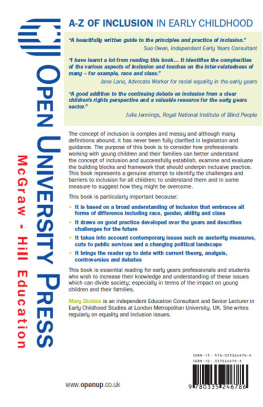

First published in Great Britain, the USA and Canada in 2022
by Canongate Books Ltd, 14 High Street, Edinburgh EH1 1TE
Distributed in the USA by Publishers Group West
and in Canada by Publishers Group Canada
canongate.co.uk
This digital edition published in 2022 by Canongate Books
Copyright Max Dickins, 2022
The right of Max Dickins to be identified as the author of this work has been asserted by him in accordance with the Copyright, Designs and Patents Act 1988
British Library Cataloguing-in-Publication Data
A catalogue record for this book is available on
request from the British Library
ISBN 978 1 83885 351 8
eISBN 978 1 83885 352 5
For my friend Ollie Shilling, still dearly missed by many
Friendship is not to be sought, not to be dreamed, not to be desired; it is to be exercised (it is a virtue)
Simone Weil, Gravity and Grace
Contents
Foreword
W ell done for picking up this book. I was worried about the name of it, to be honest. Would anyone really want to be seen reading a book called Billy No-Mates? My publisher assured me they would. And they vetoed my proposed title: Elephant in the Room: How to Thrive Despite Your Enormous Penis. They said it had nothing to do with the content. And was vaguely offensive. And seriously can you stop emailing us about this now?
Obviously, you have lots of friends. But you know that men have a friendship problem. Its hard to make friends when youre an adult male, quips the American stand-up John Mulaney. I think thats the greatest miracle of Jesus. He was a thirty-three-year-old man and he had twelve best friends. But while men can laugh at the problem, we dont really know what to do about it.
And anyway, isnt losing friends when you get older normal? Something to be shrugged off, along with your penchant for Radio 5 Live and nose hair you could thatch a cottage with? We come to have a sort of learned helplessness with our friendships. We assume that we are meant to sit in a depressing, almost friendless holding-pattern until we retire; only then can we rediscover friendship, on cruises, on golf courses, and at interesting talks at the Imperial War Museum.
You might remember the scene at the end of Stand by Me, Rob Reiners classic movie about the friendship of four boys on the cusp of adolescence in a tiny American town called Castle Rock. The story surrounds an adventure they all go on during their last summer before big school. For days they march into the forest in search of the body of a missing boy called Ray Brower and the fame the discovery will bring them. The film ends with the narrator one of the boys, now an adult filling us in on what became of their friendships.
Two of the boys were soon just two more faces in the hall at high school. That happens sometimes, he says. Friends come in and out of your life like busboys in a restaurant. Another becomes his best buddy but tragically dies some years later, intervening in a violent crime at a local diner. But its the final lines of the film that wind you, spoken by the narrator as he types the ending of the novel on which we now discover the movie was based:
I never had any friends like the ones I had when I was twelve. Jesus, does anyone?
Why does that line hit so hard? Its because many of us fear that its true.
But its not just the friendships we lose that are painful: the ones we still have can give us grief, too. Friendship is a uniquely ambiguous relationship. What even is a friend? Its famously hard to define. We all know there is a difference between an acquaintance, a friend and a close friend: but what is it? Where do the boundaries lie?
This fudge leads to other irksome uncertainties, like: at what point does a new friend become official? Do people I refer to as a friend also think of me as a friend? And its very hard to know where you are on the hierarchy with someone. You might think of them as one of your closest mates, but is that affection reciprocated? Its a minefield.
Men dont talk about this stuff. We dont discuss our friendships, certainly not in the way women do. In fact, friendship is in a broad category of things along with salad dressings, bottomless brunch, and the stylistic potential of the rug that men rarely even think about.
We dont really understand our friendships. And heres a big claim I dont really think the broader culture understands male friendship any more either. Its not that we sneer at male friendship, so much as we struggle to take it seriously. A guy announces that hes having a beer with someone from the office and hes told hes going on a man date. Close male friends are subtly undermined with the irreverent label bromance. Its as if male friendships only make sense to us in reference to something else.
Spoiler alert: it wasnt always like this. So what happened? And what can we do about it? In this book, I tell you the true story of how I tried to solve my friendship problem so that you, sorry, men that you know, might be able to solve their own. A man, Sir, should keep his friendship in constant repair, Samuel Johnson once said. Its my hope that this book might be your owners manual.
A Quick Note from Max
This is a book about men, but newsflash! not all men are the same. Given the scope of this book, and that much of it hangs off my own personal perspective white, middle-class, straight, etc there are some aspects of male experience that I havent got the room to explore. In many cases the intricacies of gay mens friendships, say I feel I dont have the right. When I use the term men in this book, therefore, I inevitably generalise to some extent. I am aware of this and humbly admit to the fact. Please take what you read in this spirit. This does not mean, however, that some general principles or patterns about men are not discernible, nor that exploring them is of no value. It is with this hope that I proceed.
Smacked in the Face
No man is an island, entire of itself; every man is a piece of the continent, a part of the main
John Donne, Devotions (1624)
I ts funny how what once seemed impossible in life can slowly become inevitable. Its enough to make you doubt any conviction youve ever had. All the sorts of people I once swore Id never become, I have become; all the things I swore Id never do now come to me as naturally as blinking. Past me thinks I am a total arsehole. Some quick examples:
I recently took out a wine subscription and catch myself saying things like, The finish on this Shiraz is very long.
I buy clothes in M&S.
I have a favourite type of sink.
My most listened-to track on Spotify is a two-hour-long recording of rain.
I freeze milk.
I certainly never thought Id be the marrying sort. I didnt believe in marriage, although in hindsight this was less an iron-clad principle than a posture. The sort of thing pretentious people in their twenties say at parties. (Youve met these people: theyve read five different books on atheism.) My reasoning, when pushed, was to doubt whether human beings were really meant to be monogamous at all. When it comes down to it, arent we all just animals? Id say, before moonwalking out of the conversation, only to spend the next twenty minutes vainly trying to open my beer bottle on a step.

